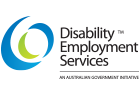
You may be wondering; can I work living with bipolar disorder? With the right support and training, people living with bipolar disorder can find a meaningful and sustainable job, which suits their strengths.
Searching for fulfilling work while managing your mental health can be tricky, but our Disability Employment Services team is here to support you to not only find meaningful work, but thrive through employment. If you’re someone who’s living with bipolar disorder, be confident there’s a job waiting for you and we can help you find it. Everyone’s experience living with bipolar disorder may be different, and we understand that everyone’s journey to employment is different, that’s why we offer tailored support to find employment.
Below, we’ve put together some facts about the benefits of employment, and included some examples of jobs that may suit you.
What is bipolar disorder?
According to the Black Dog Institute, an Australian medical research institute which investigates mental health, bipolar disorder is a chronic mental health condition with strong changes in mood, energy, focus, activity and ability to function in everyday life. One in 50 (1.8%) adult Australians experience bipolar disorder each year[1].
People living with bipolar disorder experience episodes of depression and highs, which could show in the following ways:
- Depressive episodes: low mood, feelings of hopelessness, extreme sadness and lack of interest and pleasure in things
- Manic or hypomanic episodes: extremely high mood and activity or agitation, racing thoughts, little need for sleep and rapid speech.
The pattern of mood swings is different for each person living with bipolar disorder and these changes in mood can last a week or more, and affect thoughts and behaviour.
Bipolar disorder and the benefits of work
According to Inclusion Australia, there is plenty of evidence about the social and economic benefits when people living with bipolar disorder work.
These benefits include:
- A better quality of life from earning a fair wage
- Feeling more important and valued from developing and applying skills
- More social opportunities and friends
- Greater independence
- Improved physical and mental health
Working with people of all abilities also challenges community assumptions as many people in the community mistakenly think that people living with bipolar disorder can’t work.
Ideal work environments for people living with bipolar disorder
It’s important to find work that suits you. There’s no “best” career or job for someone with bipolar disorder – but there are some things to think about when deciding what type of work might suit you.
Any kind of stress related to a job, e.g. loud background noise, any kind of interpersonal conflict, important monthly deadlines or losing an important client, has shown to induce both manic and depressive episodes in people living with bipolar disorder. Therefore, finding a suitable position is very important for people living with bipolar disorder to sustain a healthy and productive working life.
Disability Employment Services providers such as atWork Australia have the skills and experience to help people living with bipolar disorder find work.
Our recommendations for suitable workplaces include:
- Consistent responsibilities: People living with bipolar disorder benefit from jobs that entail a stable, well-defined set of duties
- Calm environments: Sensory overload can cause people living with bipolar disorder an increased level of stress and therefore a more quiet, tranquil environment is recommended
- Regular daytime hours: Sleep disruptions can have a negative effect impact on people living with bipolar disorder. A position with regular, daytime working hours is advantageous
- Potential for breaks: To avoid stress levels mounting, taking small breaks to employ effective coping mechanism, such as a walk or taking some deep breaths are beneficial for people living with bipolar disorder
- Supportive colleagues: People living with bipolar disorder thrive in a strong and supportive company culture
What jobs are best for people living with bipolar disorder?
atWork Australia puts a lot of effort into helping people find and keep the right job. We’ll take into account your individual situation, listen to you, help you focus on your needs and strengths, and set employment goals that are best for you.
For instance, we’ll help you investigate the most stress-free jobs, so you can feel balanced, safe and productive in your job. We collaborate with you and your employer should you wish to have this support and we’ll be there to help you settle in.
Just some of the many roles we can support people living with bipolar disorder to thrive in, include:
- Web Developer: Many web developers perform practical website changes at a reasonable pace. If you find the right position, your career as a developer can be tranquil, consistent, and stable
- Copywriter or Freelancer: As copywriters, people living with bipolar disorder can benefit from a flexible and adaptable work schedule with time to take mental health breaks as needed. You can work from the comfort of your own home — another significant stress reducer
- Medical Record Technician: This job suits clients who would like to work in the health care sector but prefer a low-stress segment of this field. Medical Record Technicians keep patient records accurate and up to date for physicians. Their work is typically defined by repetitive processes and performed in a quiet office setting
- Warehouse worker: A position in a warehouse provides people living with bipolar disorder with autonomy. The challenge, concentration and focus which is required for this role, can keep their mood at a level plateau
- Librarian: Being a librarian can be very calming for those living with bipolar disorder due to the quiet atmosphere. Job duties include collecting, organising and issuing library resources
- Massage therapist: This role is perfect for people who are looking for a relatively stress-free role with consistent and clear responsibilities. There is also room for flexibility with start times and locations (e.g. spas, offices or clients’ homes)
Bipolar disorder and work: Steps to find a job living with bipolar disorder
Now you have some ideas on the types of work environment and jobs that may suit you, how do you find the right role for you.
1.Set your employment goals
Your employment goals should take into account your interests, strengths, skills, values and your physical abilities. You should also think about breaking down your employment goal into smaller steps including any training or upskilling you might need.
2.Create a winning application
Create a stand our resume and cover letter, expressing how you are the right fit for the role. atWork Australia can also support you to prepare a great resume, develop your interview skills and be there to advocate to employers on your behalf.
3.Seek support
Seek support from an Employment Services providers such as atWork Australia. Not only can we advocate to employers on your behalf, but we can support them to understand what help you need to do the job well for sustainable employment. We work together to meet your goals with a truly individual approach, putting your needs front and centre. We are your Job Coach, your advocate and your partner as we find the right job for you.
atWork Australia offers Disability Employment Services from over 300 locations across Australia, so we’re likely to have a location close to you.
Contact us
We’d love to tell you more and answer any questions you may have. Please call us on 1300 080 856 or send an email to contact@atworkaustralia.com.au and let’s get started today.


